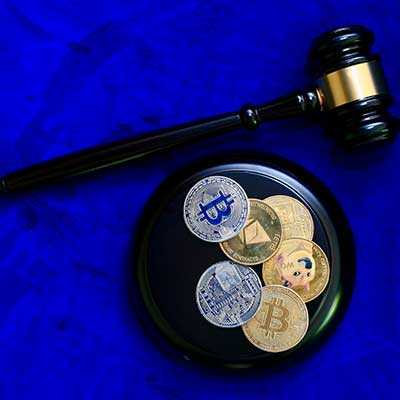1. The alleged fraud
This case emphasises, once again, the importance of keeping your username and password secure.
The fraud was very simple:
- The fraudsters obtained access to the claimant's login details for their exchange account with Binance (currently the largest exchange in the world by trading volume). That account allowed the claimants to trade their crypto with third parties. And it held about $2.6 million worth of crypto, across USDT (Tether), BNB (Binance's own coin), BTC (Bitcoin) and FET (the Fetch token, issued by a Cambridge-based AI lab) (the Coins).
- The fraudsters then 'sold' those coins at huge undervalues. In fact, these were not 'sales' at all but a way of transferring the Coins out of the claimant's Binance account to crypto wallets maintained by the fraudsters for nominal consideration.
2. The claims and service out
HHJ Pelling held that the claimants had three claims available to them: breach of confidence, unjust enrichment and an equitable tracing claim.
He also held that each of those claims could be served out of the jurisdiction.
Breach of confidence
Here, the Judge held that a private key is confidential information capable of supporting a claim for breach of confidence. He said at [10]
"It is next necessary to consider the role of the private key, which is the means by which someone is able to trade assets nominally credited to a Binance Exchange account. So far as that is concerned, the private key is some code that is needed in order to operate the account. It is perfectly clear that the key was confidential information because it was supplied to the applicant for the purpose of enabling the applicant to operate its own account. ..."
That conclusion is not very surprising.
Next, the Judge went on to assess why England had jurisdiction over the claim. His essential reasoning was as follows:
- English law will apply to the claim, and England will have jurisdiction, if the damage is sustained in the jurisdiction: [13-14].
- Damage is sustained in the jurisdiction where the person or company who owns a stolen cryptocurrency is domiciled: [14].
The second of these conclusions is open to debate. It might be argued that
- It is not possible to say that cryptocurrencies are capable of being situated in any one place. At its most basic, saying that Isabel owns 1 Bitcoin simply means that the blockchain ledger, maintained on thousands of nodes dispersed around the world, records that Isabel has 1 Bitcoin.
- Saying that a claimant suffers a loss where he is domiciled means that he will ALWAYS be able to sue in his home jurisdiction. But that is the sort of blunderbuss approach to jurisdiction that the carefully calibrated jurisdictional gateways are designed to avoid.
Equitable proprietary claim
Here, the Judge explained that - following Lord Browne-Wilkinson's decision in Westdeutsche v London Borough of Islington [1996] AC 668 - a thief will hold stolen property on constructive trust for his victim: [15].
The Judge did not give any direct guidance on unjust enrichment claims: ibid.
3. Disclosure
HHJ Pelling also decided that he had jurisdiction to make a disclosure order against Binance requiring it to provide KYC information about the customers to whom the Coins had been transferred.
Two aspects of the Judge's decision call for comment.
Serving a disclosure order abroad?
The first hurdle the claimants had to overcome was a conflict of authority.
In AB Bank v Abu Dhabi Commercial Bank [2017] 1 WLR 810, Teare J had decided that (i) a Norwich Pharmacal disclosure order constituted final relief which (ii) did not fit within any of the gates of jurisdiction found in PD6B and so could not be served out of the jurisdiction.
But in Ion Science v Persons Unknown (Unrep, 21.12.20), Butcher J had held that a Bankers Trust order could be served out of the jurisdiction (at least where a claimant was in hot pursuit of stolen money).
HHJ Pelling decision to follow the more recent, and more directly on point, decision of Butcher J.
Test for granting a disclosure order
HHJ Pelling accordingly went on to consider whether the five-fold test for granting a Bankers Trust disclosure order was met. He held it was:
- Grounds to believe that the money/assets about which information sought belong to the claimant. This test was satisfied on the facts.
- Real prospect that the information would will lead to the location/preservation of assets. As noted above, the claimants were seeking information that would allow them to identify the 'customers' who received the stolen Coins. This would obviously assist in tracking down the fraudsters and the current whereabouts of the Coins or their traceable proceeds.
- The order should be directed at uncovering the stolen assets and be no wider than necessary. The Judge was satisfied that these requirements were overcome.
- The claimants' interest in obtaining the order outweighs detriment to Binance. Given that it would be easy for Binance to provide the information sought, and that their standard terms allowed them to comply with laws or regulations formulated by government authorities, the Judge found this condition satisfied.
- Claimant undertakes to meet Binance's reasonable costs. This undertaking was given so presented no difficulty.





